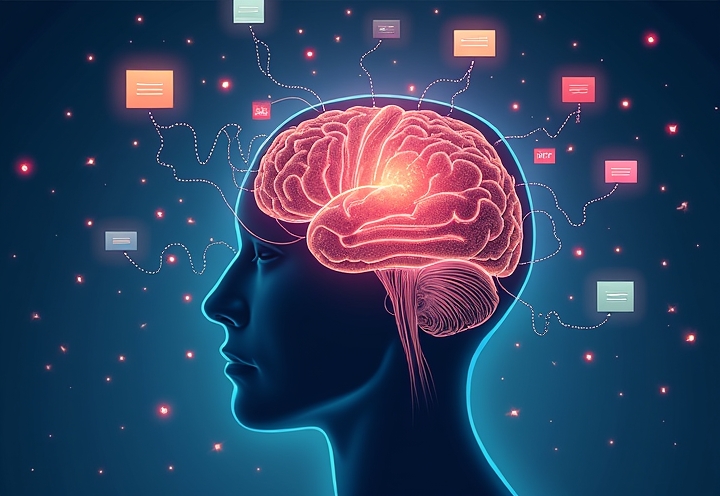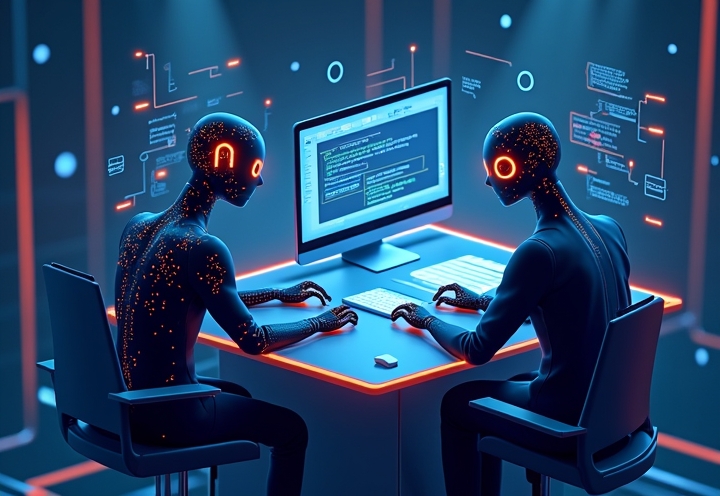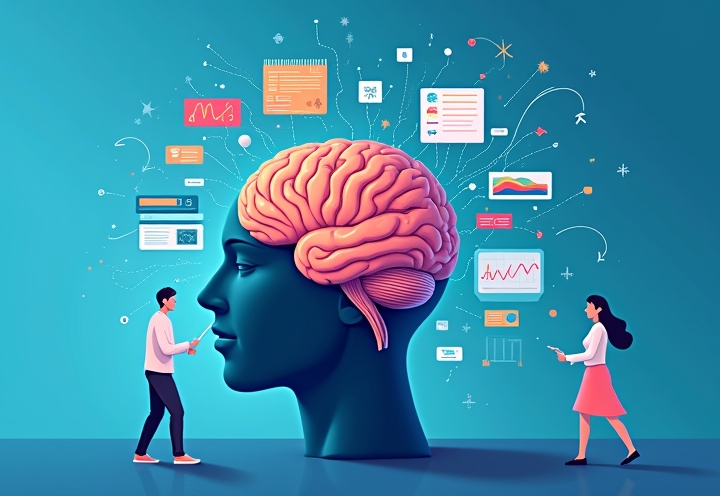
Stop Yelling and Start Speaking Your Actual Needs
Anger feels like truth, but it’s usually just an unmet need yelling. Learn a 4-step system to pause, guess what the other person values, and speak yours clearly.

Anger feels like truth, but it’s usually just an unmet need yelling. Learn a 4-step system to pause, guess what the other person values, and speak yours clearly.

Social anxiety is a fear loop your brain built – not who you are. Chapter 7 of my book shows how cognitive empathy and neuroplasticity can rewire that response.

Conflict at work isn’t a logic problem – it’s emotion plus need trying to be heard. After 20 years studying empathy, I use a three-step cycle to turn tense meetings into clear conversations.

Phone pings once, attention vanishes, partner’s face collapses. That micro-abandonment is called technoference, and it’s wrecking your couch time without you noticing.

Task switching isn’t laziness – it’s your brain paying a real switching cost. Each flip leaves attention residue that tanks focus and manufactures fatigue.

We confidently misread exponential growth as linear, even when we can do the math. Want to see what AI could simulate if it understood compounding better than we do?

Turns out AI agent teams do more than finish sentences – they plan, build, test, and watch for risks so you can shift from grinding code to orchestrating ideas.

Turns out you can describe software in plain English and AI builds it. My control freak side hated it. My productivity loved it. Now I wonder what I’d make if typing wasn’t the limit.

Cooperation beats compliance for building trust. Volunteer in local peace work, turn neighborhoods into cooperation labs, or just practice consent and repair at home—kids export what they see.

Turn “You’re lazy” into “I value efficiency” and watch defensiveness vanish. Swap evaluations for values, invite dialogue instead of triggering lizard brains.

We made the phone sit in the bread box during dinner. Felt weird at first, then my nervous system went, “Oh. This is the game.”

Your brain switches tasks like an old computer freezing apps. Research shows “attention residue” lingers, mental load spikes, and mistakes multiply. Treat focus as stress prevention.

Your phone interrupts a conversation and suddenly your partner feels like second place. Those quick checks cost more than you think: weaker bonds, more fights, less intimacy. What if you just put it away for a bit?

Task switching fries your brain like a glitchy console, leaving sticky attention residue that tanks your focus. Want your creative sparks and mental health XP back?

Ever wonder why bouncing between tasks turns your brain into glitchy oatmeal? Switch cost is real, and deep work might be your escape hatch from the frenzy.

Workplaces devolve into blame-fests because shame is loud and ineffective. OFNR separates facts from feelings and needs, turning conflict into collaboration instead of a courtroom.

Quick chats turn into battles when we spawn Judgment Bosses instead of staying curious. After 20 years, I’ve seen us project triggers like glitchy AI. Chapter 2 offers drills to debug conflict.

Maybe spiking networks and weird brain-like chips could help us spot the difference between voluntary vibes and bossy control freaks better than token math.

You can ground chaotic arguments by ditching future-tripping, reframing judgment as unmet needs, and reflecting feelings back without agreeing or caving.

Social anxiety is basically fear of judgment making you hide. Learn to spot the need underneath that fear, practice “street empathy” by getting curious about others, and watch the freakouts lose power.

Flip from “Am I good enough?” to “What’s interesting about you?” and watch social anxiety lose its grip. Street empathy = practical curiosity that gives your self-judging brain less CPU cycles.

When your brain rehearses disaster scripts at parties, try this: track what’s real, ditch the doom loops, ask curious questions. 20 years of face-plants distilled into a cheat code.

Team lead blames dev for being late; icy silence follows. Or try PEP: observe facts, guess feelings, name needs, make requests. Lizard brains chill, trust respawns.

Conversations move too fast, cues get missed, and we react before thinking. What if you could slow time in tense talks by chunking the exchange and reflecting back what you hear?

LLMs chat well but miss emotional cues. Future AI might use hybrid logic, world simulations, and concept models to actually understand feelings.

When you think ideas get stolen, you’re chasing ghosts. Copyright guards what you build, not brain sparks. Agreements and docs do the heavy lifting where law can’t.

Dashing off quick messages to save time? Your shortcut might cost others hours decoding vague notes, hunting context, and redoing work—turning your efficiency win into a team loss.

Struggling with conflict at work? I built EmpathyBot, a free AI coach that helped me decode colleagues’ needs instead of escalating tensions. Try it at EmpathyBot.net.

Off-grid ranch in Jalisco’s mountains offers solar power, spring water, hiking, hot tub, cold plunge, kitchen, WiFi, and workspace—designed for solo reset or group retreat.

Social anxiety stems from assuming others judge you. Learn to observe facts instead of mind-reading, express feelings clearly, and request feedback to build real connection.
Recent Comments